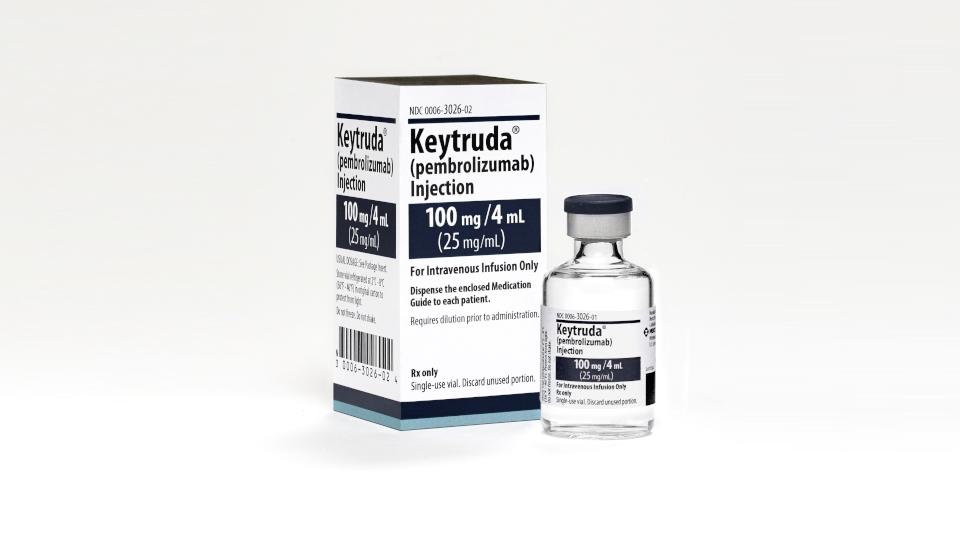Imfinzi faces Keytruda competition in biliary tract cancer

MSD’s PD-1 inhibitor Keytruda has been approved by the FDA as a treatment for locally advanced unresectable or metastatic biliary tract cancer (BTC) in combination with chemotherapy, the first immunotherapy competitor to AstraZeneca’s Imfinzi for these patients.
The approval was based on the KEYNOTE-966 study, which found a statistically significant and clinically meaningful improvement in overall survival (OS) versus chemo alone in newly diagnosed BTC patients.
The results showed a 17% increase in OS for Keytruda (pembrolizumab), coming in at a median of 12.7 months for the combination versus 10.9 months for chemo alone.
Biliary tract cancer occurs in the bile ducts and gallbladder, with approximately 23,000 diagnoses in the US each year. Life expectancy is poor, with just 5% to 15% of patients expected to live beyond five years.
The disease can be asymptomatic in the early stages, so patients have often progressed to more severe disease before treatment starts, when options are limited and prognosis is poor.
It remains to be seen if the data with Keytruda will be strong enough to supplant Imfinzi (durvalumab), which was approved for BTC by the FDA last year on the back of data from the TOPAZ-1 trial, which showed a 20% improvement in OS with Imfinzi plus chemo compared to chemo alone. In that study, median OS came in at 12.8 months and 11.1 months, respectively.
At the time, Imfinzi was trumpeted as the first advance in the treatment of BTC in a decade, when it was found that dual chemo with cisplatin and gemcitabine was more effective than gemcitabine alone, which for years was the standard therapy for this type of cancer.
Imfinzi is also approved for forms of lung and liver cancer and said in its second-quarter update that BTC and hepatocellular carcinoma (HCC) – the most common form of liver cancer – were driving a health 57% increase in sales to almost $2 billion in the first half of this year.
Imfinzi and chemo had become the “undisputed standard of care within months,” said AZ’s head of oncology, Dave Fredrickson, in the update, adding that take-up of the regimen in Europe and Japan was “outpacing the US trajectory.”
OS benefit in kidney cancer
While Keytruda’s potential in BTC is hard to gauge, MSD (known as Merck & Co in the US) had more good news with the drug today from a clinical trial in renal cell carcinoma, a form of kidney cancer.
In the KEYNOTE-564 study, Keytruda has become the therapy to show a statistically significant improvement in OS compared to placebo when used as adjuvant therapy for RCC patients at high risk of recurrence after surgery to remove the cancer.
Keytruda is already approved for the indication, based on interim results reported in 2021 that showed a 32% improvement in disease-free survival (DFS) with the drug. The OS benefit isn’t being disclosed for now, but was “clinically meaningful,” according to MSD.
Adjuvant treatment moves use into patients with earlier-stage cancer, a key strategy for Merck and other cancer immunotherapy companies, as it expands the pool of patients eligible for treatment.












